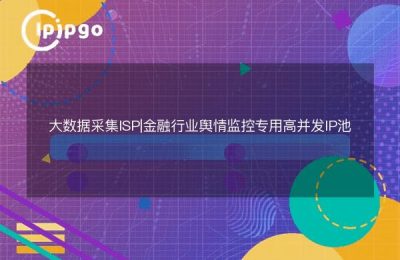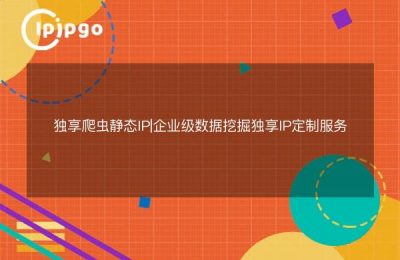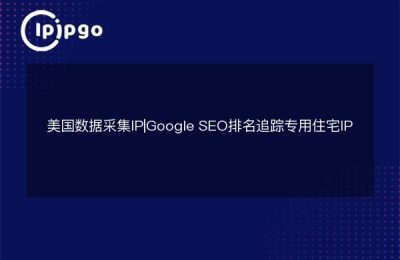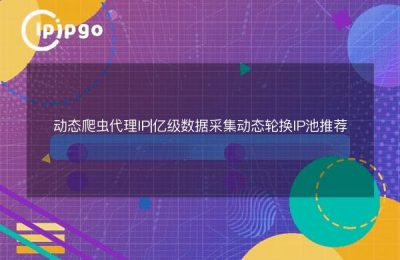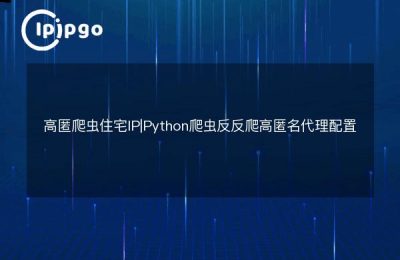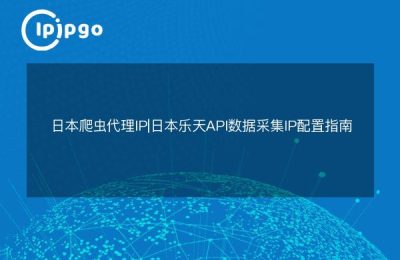
What exactly does dynamic IP rotation solve?
Do data collection friends have encountered such a situation: obviously the program is running well, suddenly the target site pops up the verification code or even blocked IP. this time if the hand hasDynamic IP Pool, then you can switch network identities and continue to work as if you were changing clothes.
The biggest problem with traditional single-IP collection is "feature curing" - when a website detects high-frequency visits from the same IP within a short period of time, it will trigger the defense mechanism. With the dynamic residential IP service provided by ipipgo, real home broadband IPs are used for each request, and with the automatic rotation mechanism, the probability of being recognized can be effectively reduced.
Hands-on building of rotation scripts
Here is an example of the Python ecosystem to demonstrate the IP rotation scheme for two common scenarios:
Selenium browser solution:
from selenium import webdriver
from ipipgo import ProxyPool import official SDK
proxy = ProxyPool().get_proxy() get latest IPs
options = webdriver.ChromeOptions()
options.add_argument(f'--proxy-server=http://{proxy.ip}:{proxy.port}')
driver = webdriver.Chrome(options=options)
driver.get("Target URL")
Scrapy crawler program:
settings.py settings
IPIPGO_API = "your authentication key"
DOWNLOADER_MIDDLEWARES = {
'scrapy_ipipgo.RotateProxyMiddleware': 610
}
Middlewares.py core logic
class RotateProxyMiddleware.
def process_request(self, request, spider): proxy = requests.
proxy = requests.get(f "http://api.ipipgo.com/get?key={IPIPGO_API}").json()
request.meta['proxy'] = f "http://{proxy['ip']}:{proxy['port']}"
Why Choose Residential IP Services?
Common data center proxies on the market are easy to identify, and ipipgo'sResidential IP Resource LibraryThere are two major advantages:
| comparison dimension | Residential IP | Server Room IP |
|---|---|---|
| IP Type | Real Home Broadband | server cluster |
| Requested features | Natural user behavior | Machine features are obvious |
| life cycle | Dynamic replacement on demand | Permanent fixation |
It is found through actual testing that after using ipipgo's dynamic residential IP, the interception rate of the target website is reduced from the original 78% to 12%, which effectively improves the continuity of data collection.
Frequently Asked Questions QA
Q: How to choose between dynamic IP and static IP?
A: High-frequency acquisition with dynamic IP to prevent blocking, long-term maintenance of the session with a static IP. ipipgo support two modesSeamless switchingOne console to manage all IP resources
Q: How to ensure the stability of proxy IP?
A: ipipgo adopts a triple quality testing mechanism: first entry test → hourly survival test → real-time feedback from the user's end to ensure that the IP availability rate is maintained at 99.2% or above.
Q: Do I need to maintain my own IP pool?
A: Not necessary at all. When you get the IP through API, the system will automatically assign theUnused premium lines. Used up IPs are returned to the resource pool for cooling to avoid reuse

